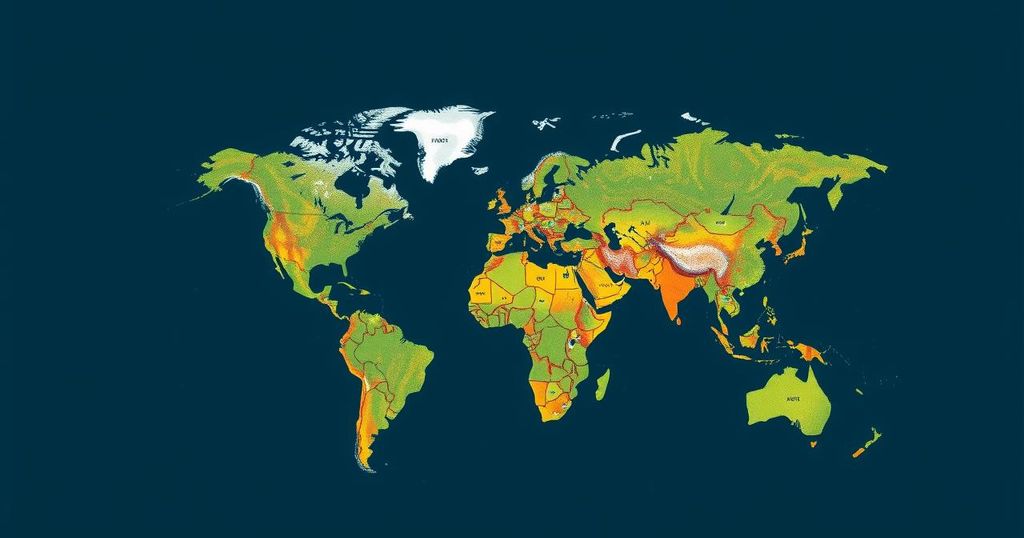As nearly 200 nations convene for COP29 in Baku, Azerbaijan, the urgency of addressing climate change remains paramount. Global commitments under the Paris Agreement are falling short, as carbon emissions are predicted to reach record highs in 2024, coinciding with scientific predictions of 2024 being the hottest year on record. This international gathering seeks to address the escalating climate crisis stemming from decades of inadequate action.
The urgency of climate action has intensified as nearly 200 nations converge at the United Nations’ climate conference, often referred to as COP29 in Baku, Azerbaijan. Despite global commitments to mitigate carbon emissions under the Paris Agreement, it has become evident that these efforts are insufficient to achieve the set climate objectives. Projections indicate that the target of maintaining global warming under 1.5 degrees Celsius may be exceeded shortly, undermining the foundational goals established during the original COP meetings initiated in 1995. In addition to diminishing global efforts, carbon emissions from fossil fuels are anticipated to reach an all-time high in 2024. This alarming trend emerges just a year following major international agreements aimed at phasing out the reliance on fossil fuels. Furthermore, scientists have warned that 2024 is on track to be the hottest year in recorded history, further illustrating the critical state of the climate crisis as the conference unfolds. The COP convenes annually to address the growing challenges of climate change, having roots that trace back nearly three decades, when world leaders first recognized the need for collaborative action. As the conference proceedings commence, the global stakes have never been more pressing, compelling policymakers to reevaluate their strategies in light of escalating climate impacts.
The annual Conference of the Parties (COP) serves as the principal forum for international negotiations aimed at combating climate change. Since its inception with COP1 in Berlin in 1995, the conference has provided a platform for nations to deliberate and coordinate their responses to the climate crisis. The Paris Agreement, established during COP21 in 2015, emphasized the commitment to limit global temperature rise as a means to avert severe climate impacts. However, the growing discrepancies between pledges and actual emission reductions signal a widening gap that poses significant challenges going forward.
The ongoing climate conference underscores a pivotal juncture in humanity’s response to climate change. Despite decades of international commitment, scientific indications reveal that the planet continues to warm at an alarming rate, with carbon emissions poised to soar. The call for immediate and effective action is critical as global stakeholders gather in Baku. The future trajectory of climate policy hinges on the decisions made at this conference, highlighting an urgent necessity for comprehensive strategies to combat climate change.
Original Source: subscriber.politicopro.com




